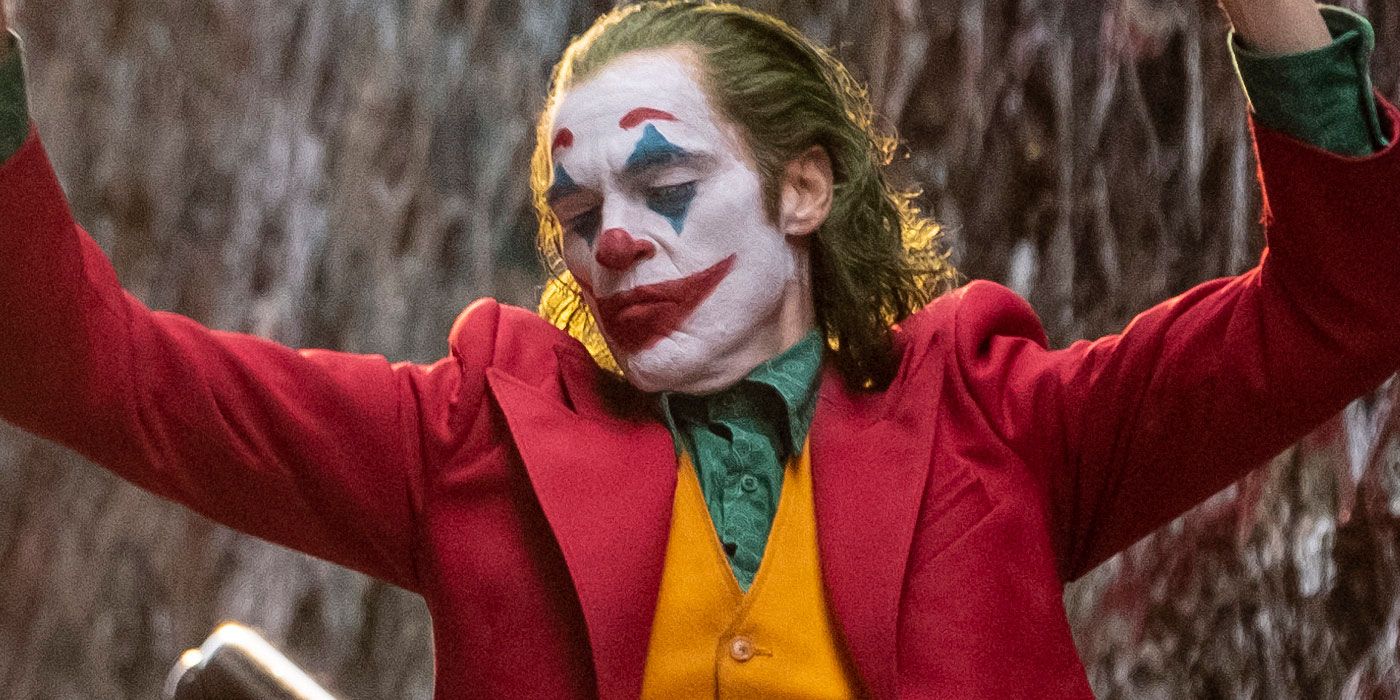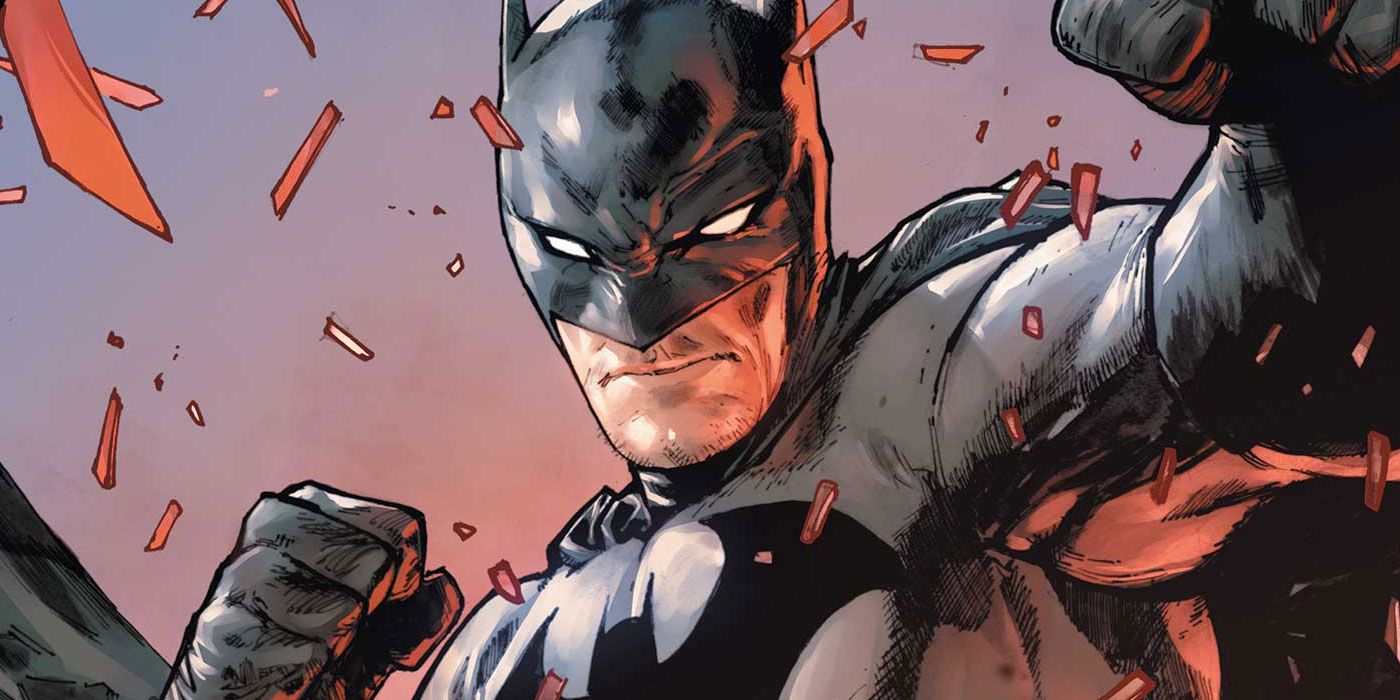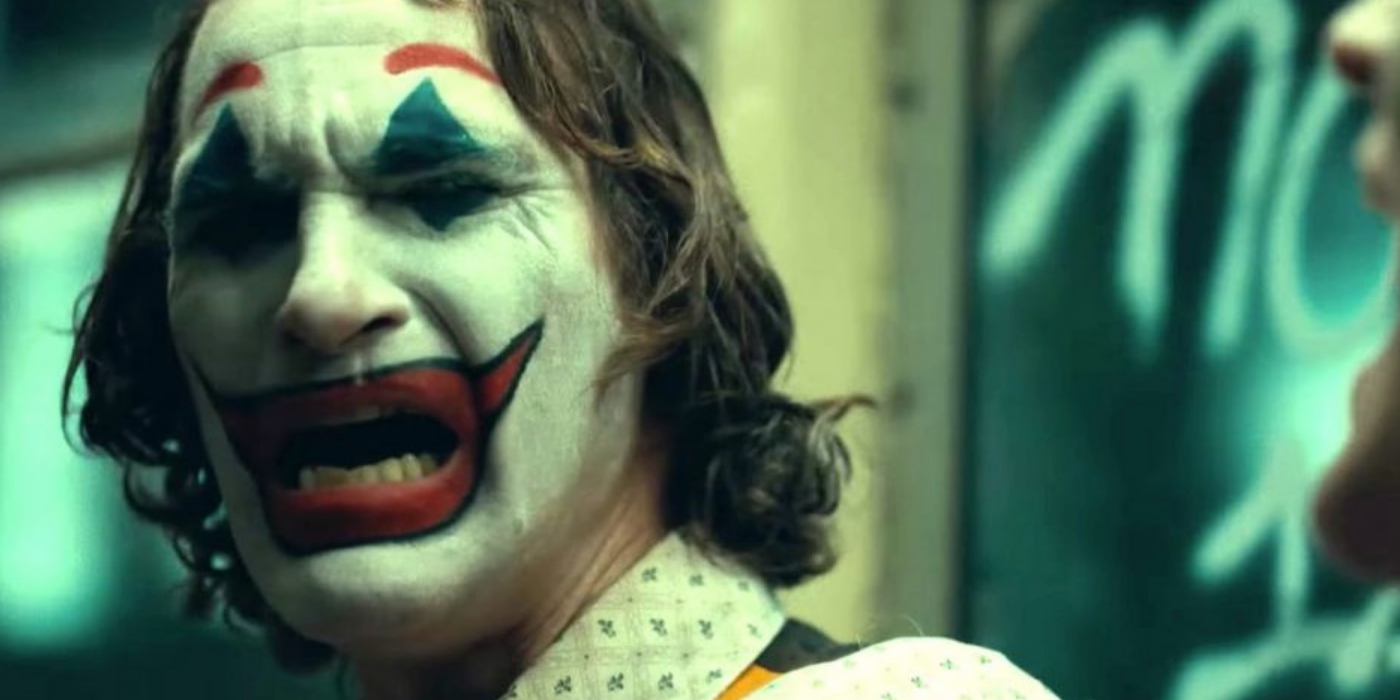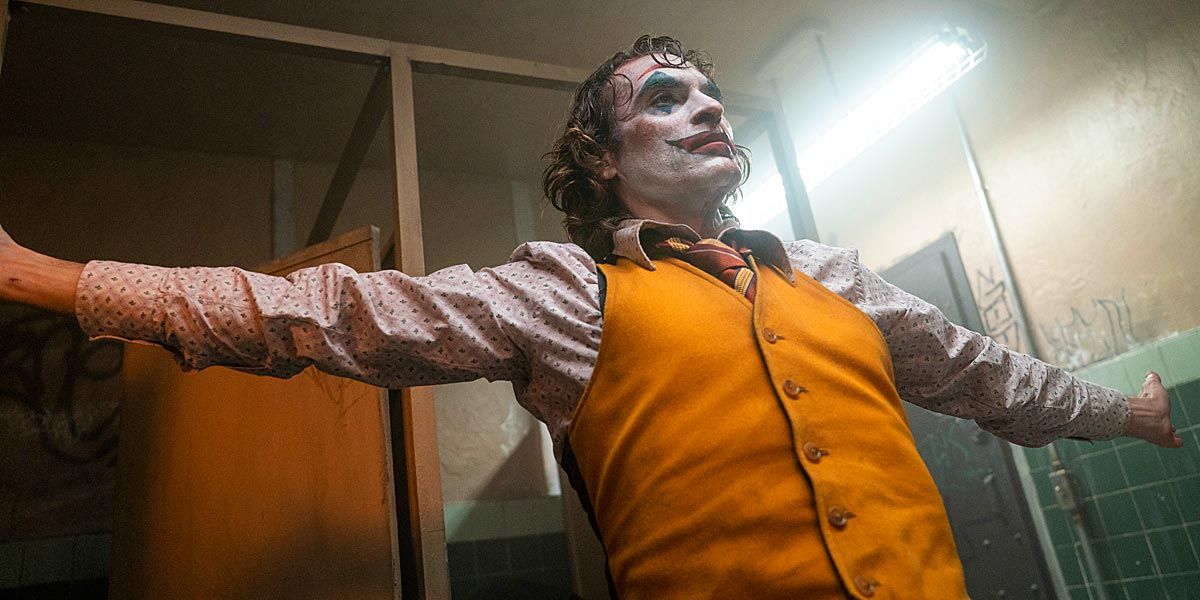WARNING: The following contains spoilers for director Todd Phillips' Joker, in theaters now.
One of the defining aspects of the Batman mythos, especially in modern incarnations, is that what the symbol of Batman represents is more important than the man who wears it. It's a major factor for many versions of the story and carries a lot of thematic weight.
That's what makes Joker's exploration of the concept of symbols and their impact on people so engaging. Joker grapples with what happens when a symbol is used for violent and personal designs instead of being centered around an ideal.
More Than A Man
A consistent theme of other Batman adaptions is the question of what Batman means. Is the persona an excuse for one man to take out his anger on the criminals of the city, or can it mean more? Can Batman become a symbol for a higher ideal? It's at the heart of any of the stories where one of the former Robins takes over the mantle of Batman from Bruce.
It's also the core of the Dark Knight trilogy, directed by Christopher Nolan, as Bruce Wayne tries to make the idea of Batman bigger than just one man so it can help inspire others to be better people. In fact, that series ended with Bruce Wayne presumed dead but John Blake willing and able to take up the mantle to continue protecting Gotham.
It's a recurring theme for the character, across multiple mediums. The idea that Batman can mean more as a symbol than as just a single entity has fueled multiple versions of the character -- and given them meaning beyond their own missions. And that's what makes Joker such a dark inversion of the approach.
The Clown Mask
Throughout Joker, Gotham is inspired by the actions taken by Arthur Fleck. Fleck's murder of three Wayne employees becomes a sensation throughout the city. Various citizens are inspired, unaware of Fleck's mental instability or his violent impulses, and use the clown outfit Arthur had been wearing at the time as a symbol of their affiliation. Other people begin wearing clown makeup during their protests around the city, co-opting a murderer's appearance because they believe he feels the same way they do about the wealthy.
In this way, the symbol of the Joker begins to take root as a sign of anger. While it's initially used to protest the super-wealthy and their disconnect from the rest of the city, the clown makeup and costume are soon adopted by more and more citizens. Ultimately, it becomes a blank check for mayhem, with the people in clown suits ultimately taking out their aggression against the police, the city and themselves.
When Fleck goes on television and shoots Murray Franklin dead on live TV, it catalyzes the other clowns around the city to cut loose and riot. Joker serves as an inspiration for the citizens of Gotham just like Batman has. Yet, what Joker inspires is decidedly more disturbing.
Becoming A Symbol
Joker explores the idea that sometimes one man's actions can morph into a symbol for something larger when those actions are interpreted by a mob that's more interested in their potential to fuel the mob's own ends. Right before he murders Franklin, Fleck brings up his mental health problems. Gotham had shuttered many of the social assistance programs that Fleck has been utilizing to maintain at least a veneer of sanity. But without them, he gives in and becomes the dangerous clown that the world seems to perceive him as.
If anything, the rioters all wearing Joker costumes should have been fighting for the extension of those programs -- or at least a new way to handle mental illness. They don't seem to care about the Joker's motivations, though, they just like that someone is lashing out in anger.
It gives others an excuse to strike at everyone who "has it coming", a dark and tricky place for anyone to be, let alone an entire city. Joker isn't that concerned with Batman, but it does show the flip-side of the optimism behind the idea of the character: sometimes, people just want to watch the world burn, and they'll dress up as clowns if that's what it takes to light the match.
Directed by Todd Phillips, Joker stars Joaquin Phoenix, Robert De Niro, Zazie Beetz, Bill Camp, Frances Conroy, Brett Cullen, Glenn Fleshler, Douglas Hodge, Marc Maron, Josh Pais and Shea Whigham. The film is in theaters now.




